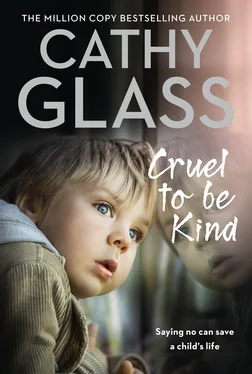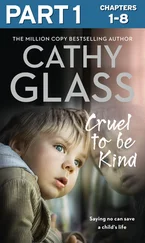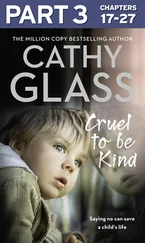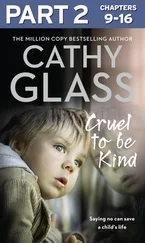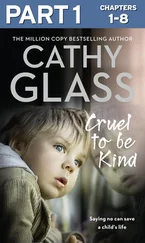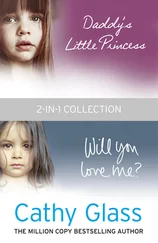‘Cathy received a rather unpleasant telephone call from Max’s mother earlier this afternoon,’ Jill said evenly. ‘She wasn’t aware her contact details had been given to the family. We usually ask our carers first.’
Jo raised her eyebrows. ‘His mother wanted the phone number of where Max would be staying and I didn’t see a problem in giving it to her. He is in care voluntarily.’ It sounded as though it was me who had the problem.
‘It was quite a threatening call,’ I said. ‘Caz told me to give Max whatever he wanted or I’d have his father to answer to.’
Jo nodded dispassionately and made a note. ‘I’ll mention it to her when I see her later.’
‘Does the family have Cathy’s address too?’ Jill asked.
‘I’m not sure. I might have mentioned it but I think I just told her the area. She was quite insistent on a number of points before she agreed to Max going into care.’
‘Given the nature of the phone call this afternoon, if she doesn’t already have the address perhaps we could withhold it for now?’ Jill suggested diplomatically. ‘We can always review that later.’
‘All right,’ Jo said, and made another note.
I was grateful for Jill’s support. I felt that Jo, like many social workers, didn’t fully appreciate how worrying it could be for a carer to have an irate parent phoning or turning up on their doorstep. Social workers don’t have this worry, as the families they deal with don’t know their home address. While it’s often appropriate for the parents of a child in care to have the foster carer’s contact details, it didn’t hurt to err on the side of caution to keep everyone safe.
Jill took a pad and pen from her bag. ‘What are the contact arrangements?’ she now asked.
‘Caz wants to see Max every evening while she’s in hospital, as she has been doing. His sisters have been taking him, but I assume Cathy will be taking him now?’
‘Yes,’ I said.
‘Perhaps his sisters could take his bag to the hospital and Cathy could collect it from there?’ Jill suggested.
‘That would be good,’ I added.
‘I’ll mention it tonight,’ Jo said, making another note. ‘Hopefully they can arrange it for tomorrow. It’s too late this evening. They’ll be on their way to the hospital now – they use the bus.’
‘How long will Max see his mother for each evening?’ Jill asked.
I picked up my fostering folder and pen so I had them ready to write down the contact arrangements. I start a new folder for each child.
‘Caz said they have been visiting between five-thirty and seven, so I think keep to that.’
‘Is that all right with you?’ Jill asked me.
‘I’ll have to give the children their dinner before we go or it will be late by the time we get home,’ I said, thinking aloud.
‘OK,’ Jill said. ‘See how it goes. Max may be tired after an hour. It’s a long time for a child to be on a ward. Do you want Cathy to stay on the ward with Max? She’ll have Adrian and Paula with her, so it would be better if they could go and wait in the play area by the café.’ A good support social worker is invaluable in clarifying arrangements and making sure they are practical for the carer.
‘That should be all right,’ Jo said. ‘It’s not supervised contact. But please be on hand in case Max wants to leave early.’
I wrote the times of contact on a sheet of paper in my folder. ‘Will this start tomorrow?’ I asked, mindful of the time. ‘It’s already five-thirty now.’
Jo glanced at the clock on the mantelpiece. ‘Caz was expecting him this evening, but I take your point. I’m not going to be finished here for a while.’
‘Perhaps Max could phone and speak to his mother this evening?’ Jill suggested.
Jo nodded. ‘I’ll speak to Caz once I get there.’
‘Will Max be seeing his mother at the weekend too?’ I asked.
‘Yes,’ Jo said, as if it was taken as read. All very well, but that would mean any of our outings at the weekend, including visits to my parents, would need to be curtailed so we were back in time to take Max to the hospital. However, I knew this wasn’t negotiable, as contact arrangements take priority over the carer’s arrangements. Foster carers get used to fitting in.
‘Will you be applying for a Full Care Order?’ Jill now asked.
‘Not at this stage,’ Jo said. ‘As long as I have Caz’s cooperation, there shouldn’t be any need to. She’s cooperated in the past.’
‘What have been the concerns?’ Jill asked, meaning why were the social services already involved with Max’s family.
‘They’ve been mainly around the girls. They weren’t going to school and two of them have been in trouble with the police. Caz was finding it a struggle to cope. She has various health issues, including type 2 diabetes and a heart condition, so we put in some support.’
‘Is Max’s weight due to a medical condition?’ Jill asked.
‘No, I don’t think so,’ Jo said lightly. ‘His mother and sisters are all a bit chubby like Max. They like their food.’
I looked at her, amazed.
Конец ознакомительного фрагмента.
Текст предоставлен ООО «ЛитРес».
Прочитайте эту книгу целиком, купив полную легальную версию на ЛитРес.
Безопасно оплатить книгу можно банковской картой Visa, MasterCard, Maestro, со счета мобильного телефона, с платежного терминала, в салоне МТС или Связной, через PayPal, WebMoney, Яндекс.Деньги, QIWI Кошелек, бонусными картами или другим удобным Вам способом.
